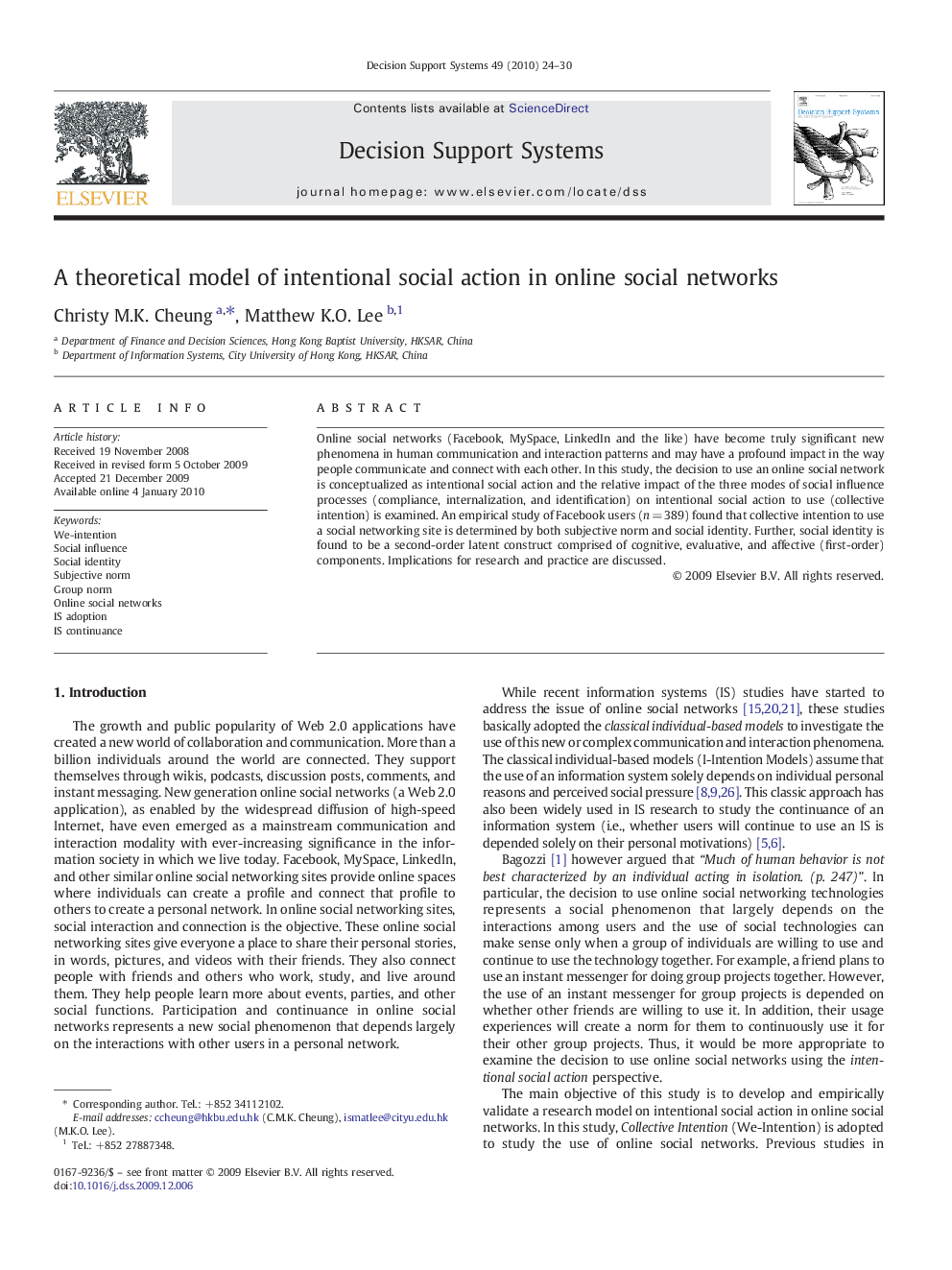| Article ID | Journal | Published Year | Pages | File Type |
|---|---|---|---|---|
| 553827 | Decision Support Systems | 2010 | 7 Pages |
Online social networks (Facebook, MySpace, LinkedIn and the like) have become truly significant new phenomena in human communication and interaction patterns and may have a profound impact in the way people communicate and connect with each other. In this study, the decision to use an online social network is conceptualized as intentional social action and the relative impact of the three modes of social influence processes (compliance, internalization, and identification) on intentional social action to use (collective intention) is examined. An empirical study of Facebook users (n = 389) found that collective intention to use a social networking site is determined by both subjective norm and social identity. Further, social identity is found to be a second-order latent construct comprised of cognitive, evaluative, and affective (first-order) components. Implications for research and practice are discussed.
